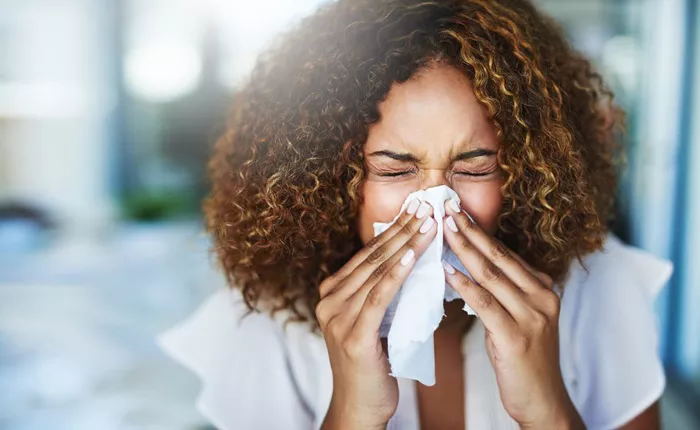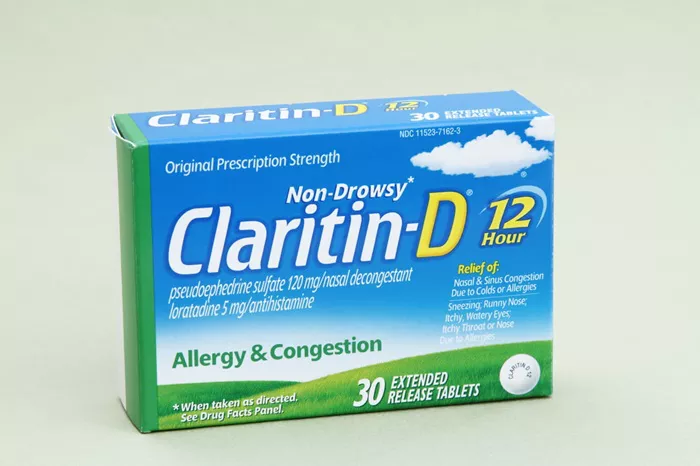Itchy nose allergy, often accompanied by sneezing, runny nose, and congestion, is a common symptom of allergic rhinitis. This condition affects millions of people worldwide, impacting their daily lives and overall well-being. While allergies can be triggered by various allergens such as pollen, dust mites, pet dander, and mold, the resulting discomfort can be effectively managed with a combination of lifestyle changes, home remedies, over-the-counter medications, and professional treatments. In this article, we will explore a range of strategies to relieve itchy nose allergies and enhance your quality of life.
Understanding Allergic Rhinitis
What is Allergic Rhinitis?
Allergic rhinitis, commonly known as hay fever, is an inflammatory condition of the nasal passages caused by an overreaction of the immune system to airborne allergens. When these allergens are inhaled, the immune system releases histamines and other chemicals, leading to inflammation and irritation of the nasal mucosa. This results in symptoms such as itching, sneezing, nasal congestion, and a runny nose.
Common Triggers
The most common triggers of allergic rhinitis include:
Pollen: From trees, grasses, and weeds, particularly during spring and fall.
Dust Mites: Microscopic organisms that thrive in household dust.
Pet Dander: Skin flakes, saliva, and urine from pets.
Mold: Spores from indoor and outdoor mold.
Environmental Irritants: Such as smoke, strong odors, and pollution.
Lifestyle and Environmental Modifications
Reducing Allergen Exposure
Minimizing exposure to allergens is a crucial step in managing itchy nose allergies. Here are some practical tips:
Keep Windows Closed: Especially during high pollen seasons, to prevent outdoor allergens from entering your home.
Use Air Purifiers: HEPA filters can help remove airborne allergens from your indoor environment.
Regular Cleaning: Dust and vacuum your home frequently, using a vacuum with a HEPA filter to trap dust mites and pet dander.
Wash Bedding Weekly: In hot water to eliminate dust mites.
Maintain Low Humidity Levels: Use a dehumidifier to reduce mold growth, keeping indoor humidity between 30-50%.
Keep Pets Out of Bedrooms: To limit exposure to pet dander in sleeping areas.
Personal Hygiene Practices
Certain personal hygiene practices can help alleviate symptoms:
Shower After Outdoor Activities: To wash off pollen and other allergens from your skin and hair.
Change Clothes: After spending time outdoors to prevent bringing allergens into your home.
Nasal Irrigation: Using a saline solution to rinse nasal passages can remove allergens and reduce inflammation.
Home Remedies and Natural Treatments
Saline Nasal Spray
A saline nasal spray can provide immediate relief by flushing out allergens and moisturizing the nasal passages. You can purchase pre-made saline sprays or make your own by mixing a teaspoon of salt with a cup of warm distilled water.
Steam Inhalation
Inhaling steam can help open nasal passages and relieve congestion. To do this, fill a bowl with hot water, lean over it with a towel draped over your head, and inhale the steam for several minutes. Adding a few drops of essential oils like eucalyptus or peppermint can enhance the effect.
Herbal Remedies
Certain herbs have antihistamine and anti-inflammatory properties that can help alleviate allergy symptoms:
Butterbur: Studies suggest that butterbur may be as effective as some antihistamines in reducing symptoms of allergic rhinitis.
Quercetin: A flavonoid found in apples, onions, and tea, quercetin has natural antihistamine properties.
Stinging Nettle: Can be taken as a supplement to reduce inflammation and histamine production.
Honey
Consuming local honey is believed to help build tolerance to local pollen, potentially reducing symptoms over time. While scientific evidence is limited, many people find this approach helpful.
Over-the-Counter Medications
Antihistamines
Antihistamines are commonly used to relieve itching, sneezing, and runny nose by blocking the action of histamines. There are several types available:
First-Generation Antihistamines: Such as diphenhydramine (Benadryl) can cause drowsiness and are typically used for short-term relief.
Second-Generation Antihistamines: Such as loratadine (Claritin), cetirizine (Zyrtec), and fexofenadine (Allegra) are less likely to cause drowsiness and are suitable for long-term use.
Decongestants
Decongestants, such as pseudoephedrine (Sudafed) and phenylephrine, can reduce nasal congestion by narrowing blood vessels in the nasal passages. They are available in both oral and nasal spray forms. However, nasal sprays should not be used for more than a few days to avoid rebound congestion.
Nasal Corticosteroids
Nasal corticosteroids, such as fluticasone (Flonase) and mometasone (Nasonex), are highly effective in reducing inflammation and treating nasal symptoms of allergic rhinitis. They are safe for long-term use and are often recommended for persistent symptoms.
Combination Medications
Some medications combine antihistamines and decongestants for more comprehensive symptom relief. For example, loratadine/pseudoephedrine (Claritin-D) and cetirizine/pseudoephedrine (Zyrtec-D) are available over-the-counter.
Prescription Treatments
Leukotriene Receptor Antagonists
Montelukast (Singulair) is a prescription medication that blocks leukotrienes, chemicals involved in the inflammatory response. It can be particularly effective for individuals with both allergic rhinitis and asthma.
Immunotherapy
Allergen immunotherapy, commonly known as allergy shots, involves gradually exposing the body to increasing amounts of an allergen to build tolerance. This treatment can significantly reduce symptoms over time and may provide long-term relief. Sublingual immunotherapy (SLIT), where allergens are placed under the tongue, is another option for certain types of allergies.
Biologics
For severe allergic rhinitis that does not respond to other treatments, biologic medications such as omalizumab (Xolair) may be prescribed. These medications target specific components of the immune system to reduce allergy symptoms.
Integrating Mind-Body Practices
Yoga and Breathing Exercises
Practicing yoga and breathing exercises (pranayama) can help reduce stress and improve overall respiratory health, potentially alleviating allergy symptoms. Poses that open the chest and promote deep breathing, such as the Bridge Pose and the Fish Pose, can be particularly beneficial.
Acupuncture
Acupuncture, a traditional Chinese medicine technique, involves inserting thin needles into specific points on the body to balance energy flow. Some studies suggest that acupuncture may help reduce symptoms of allergic rhinitis by modulating immune response and reducing inflammation.
Mindfulness and Meditation
Mindfulness and meditation practices can help reduce stress, which may exacerbate allergy symptoms. Regular practice of mindfulness can improve emotional resilience and help manage the psychological impact of chronic allergies.
Diet and Nutrition
Anti-Inflammatory Diet
Eating a diet rich in anti-inflammatory foods can help reduce overall inflammation in the body and potentially alleviate allergy symptoms. Key components of an anti-inflammatory diet include:
Fruits and Vegetables: Particularly those high in antioxidants, such as berries, leafy greens, and cruciferous vegetables.
Omega-3 Fatty Acids: Found in fatty fish (such as salmon and mackerel), flaxseeds, and walnuts.
Whole Grains: Such as oats, quinoa, and brown rice, which have lower inflammatory potential compared to refined grains.
Spices: Like turmeric and ginger, which have natural anti-inflammatory properties.
Hydration
Staying well-hydrated can help thin mucus and reduce nasal congestion. Aim to drink plenty of water throughout the day, and consider warm herbal teas for additional relief.
Probiotics
Probiotics, found in fermented foods like yogurt, kefir, and sauerkraut, as well as in supplement form, can support gut health and potentially modulate immune response, reducing allergy symptoms.
When to See a Doctor
Persistent or Severe Symptoms
If you experience persistent or severe allergy symptoms despite using over-the-counter medications and home remedies, it is important to consult with a healthcare provider. A doctor can perform allergy testing to identify specific triggers and recommend appropriate treatments.
Potential Complications
Untreated allergic rhinitis can lead to complications such as sinusitis, ear infections, and asthma exacerbations. Seeking professional medical advice can help prevent these complications and improve your overall quality of life.
Individualized Treatment Plan
A healthcare provider can help create an individualized treatment plan tailored to your specific needs and allergy triggers. This may include a combination of medications, lifestyle modifications, and possibly immunotherapy.
Conclusion
Relieving itchy nose allergies requires a multifaceted approach that includes lifestyle and environmental modifications, home remedies, over-the-counter medications, and professional treatments. By understanding the underlying causes of allergic rhinitis and implementing a comprehensive management plan, individuals can significantly reduce their symptoms and improve their quality of life. Remember to consult with a healthcare provider for personalized advice and treatment options, and consider integrating complementary therapies such as yoga, acupuncture, and dietary changes to support overall health and well-being.
[inline_related_posts title=”You Might Be Interested In” title_align=”left” style=”list” number=”6″ align=”none” ids=”8878,8810,8802″ by=”categories” orderby=”rand” order=”DESC” hide_thumb=”no” thumb_right=”no” views=”no” date=”yes” grid_columns=”2″ post_type=”” tax=””]
































